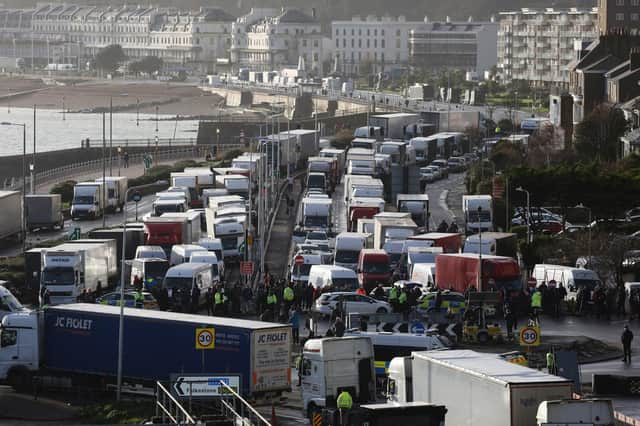The lesson Scotland should learn: Borders are not just for Christmas - Brian Wilson


Even as the Brexit process limps to a conclusion, the certainty is that the negative consequences of restoring a border between Britain and EU will continue to manifest themselves in many ways.
As a goodwill gesture, it would still make sense to extend the status quo until businesses have time to digest the detail contained within these 2000 pages instead of rubbing salt in many wounds by pretending January 1st is a fixed date for national celebration. We are certainly not ready.
Advertisement
Hide AdAdvertisement
Hide AdI cannot resist re-visiting Lord Agnew of Oulton, wittily designated Minister for Brexit Preparedness. Back in October, this patronising peer accused companies of a “head-in-the-sand approach” and added: “It is their businesses at stake from January 1st and they really must engage in a more energetic way.” The question remains: “Engage with what?”.
At the time, I went through Agnew’s evidence to the Treasury Select Committee and quoted his response on toileting arrangements for tailed-back lorry drivers. “Stacks of portaloos” were being built, he vouchsafed, although “I am sorry to not have the granularity”.
Ten weeks have passed and it looks like the portaloos must still be in construction while “the granularity” remains on someone’s “to do” list. Perhaps Lord Agnew should present himself on the motorways of Kent to exhort stranded truckers to greater patriotic efforts.
The whole Brexit trick embraced an assumption that the EU would behave as a British government wanted it to, with no interests to defend or cards to play. As we will continue to learn to our cost, the EU holds many cards – including, when occasions arise, control of its own borders.
What should Scotland learn from this? As Nicola Sturgeon correctly pointed out, the scenes at Channel ports had serious implications for Scottish exporters.
In particular: "This is devastating for our world-class seafood businesses and they need our support."
But let’s look ahead to the “support” Ms Sturgeon envisages.
It is to achieve not one but two borders between “our world-class businesses” and the markets on which they depend. The partitioning of Britain, inescapably, involves creating a real border where none exists.
Advertisement
Hide AdAdvertisement
Hide AdAlex Salmond largely marginalised this inconvenience in 2014 by ridiculing “border posts at Berwick” and pointing to the fact we were all in the EU. That argument no longer applies but the geography has not changed.
Either we would be out of both UK and EU or (improbably) back in the EU while the UK (continuing) remained out. Either way, there would be two borders between Scotland and the continent. It would be a double Brexit.
Ms Sturgeon declared the agreement “disastrous” for Scottish farmers and seed potatoes have obviously been used politically by our European friends.
However, the more permanent truth is that, according to the Scotland’s rural affairs minister “four times as much trade in value goes to other parts of the UK than to the EU”. So that would be four times as “disastrous”?
I used to point out that 60 per cent of freight coming across the Channel into the UK ends up north of Birmingham. On economic and environmental grounds, far more trade should be through ports in Scotland and the north of England. Not a lot has been done about that so we live with the reality and need to understand that borders are not just for Christmas.
They create enormous logistical problems, foster crime on an industrial scale and inhibit trade. That is why centuries were spent breaking them down while no western democracy has been daft enough to resurrect them within itself. Brexit is another reason to ask - why would they bother?